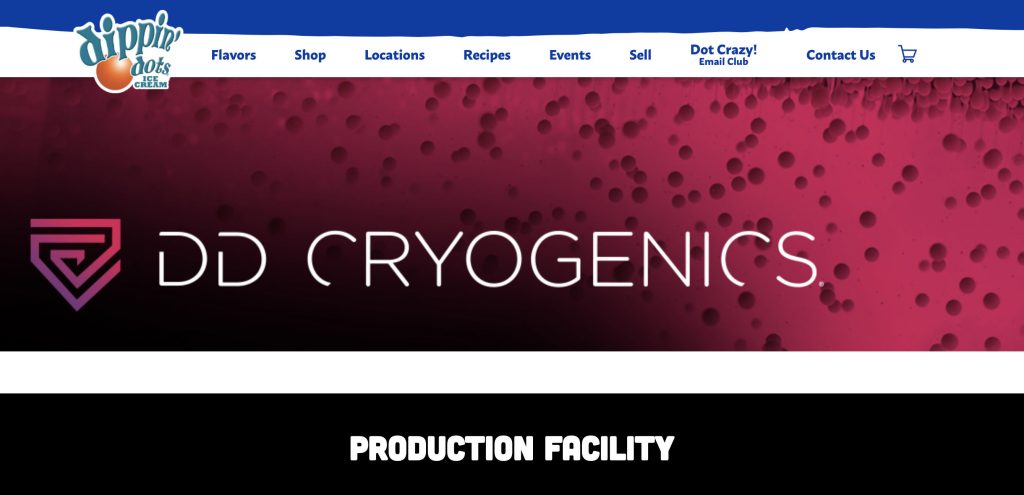
Short-Term Thinking is the Problem
A FutureProof Blog Post
Is there a more laugh-so-you-don’t-cry artifact of these times than the redeployment of Dippin’ Dots cryogenic equipment to support COVID vaccine distribution? Just a look at the webpage tells the story of 2020: the Dippin’ Dots logo represents the “before times,” and the DD Cryogenics logo is our new reality. Good thing the engineers who designed Super Freezers did a good job – right?
In this first weeks of 2021, we are still in the fog of the chaos that was 2020. The United States, billed as the world’s superpower, roundly failed to meet the challenge of COVID. And most of its citizens watched in shock as the illusion of control – the idea that our political and business leaders were scrupulously watching the store – finally cracked. The high-performance vehicle that seemed to be the US turns out to be a neglected used car kludged to barely-functioning status. That rocky ride is finally failing under years of neglect in a society that continually chooses short-term gain over long-term stability.
And let’s not even mention the events of January 6, 2021.
In 2001, we could blame external forces for the disaster that was 9/11. But even then, fundamental coordination was missing at the most basic level – firefighters and police at Ground Zero used disparate systems that could not communicate with each other. The military and the FAA played phone tag. We could say, back then, “no one could have imagined this.”
Now, we can only blame ourselves for accepting the current state of play.
We cannot say there were no red flags. Healthcare professionals were already struggling under the strain of the do-more-with-less business imperative. The meritocracy that was essential to the rise of the commercial Internet has been damaged by the promotion of under-qualified managers in critical positions. Government websites are largely defined by their unusable design, despite the fact that millions depend on them. Despite multiple “Infrastructure Week” shills, the physical and digital underpinnings of our country continue to decay.
And then, the pandemic that any thoughtful person could anticipate in a completely interconnected world, and a society left largely on its own to cope. To kludge its way through a historic catastrophe with whatever it can manage. The Hunger Games, indeed.
A kludge is not in itself a bad thing; the Apollo 13 improvisation famously got the crew home safely. But engineers know that a well-designed product or system must account for known points of failure. It also must build on the intelligence gained from those failures, as NASA famously did after the tragic and deadly Apollo 1 accident in 1967. Lessons learned from the accident made flying safe for millions of people.
Those were different times. Today we lose hundreds to the 737-MAX and the priority is not redesign or improvement – it’s convincing people to get back on those planes. Even while Boeing faces a $2.5 billion (US) settlement with the Justice Department.
Principles taught to STEM students state that “engineers must gain an understanding of all the issues surrounding a particular design challenge. These issues might include the need for the project, relevant social and economic conditions of the target population, and project constraints and requirements.”
This solid approach is well-understood. What is missing here is the core desire to solve a problem. Our built world was created by engineers who wanted to solve a problem, and made a commitment to do it well. They were supported by our political leaders and admired by the public.
Engineers and problem-solvers are not the problem. Short-term thinking is the problem. Wishful thinking is the problem. “It will do for now” is the problem.
There is no challenge we face in 2021 that could not be mitigated or even solved by an engineering mindset. We muster our collective desire to truly solve the urgent problems confronting all of us.
Every manager who accepts sub-standard work is part of the problem. Every under-qualified, insecure executive that places their ego above true accomplishment is part of the problem. Every chiseler selling substandard systems and applications is part of the problem.
Our culture must begin to soundly reject the lowering of work quality, the politicization of leadership, the end of meritocracy. Or we can become the Eloi of H.G. Wells’ The Time Machine, know-nothings living in the ruins. Stop accepting the kludged workarounds in information technology, health care, infrastructure. Or just bring on the Morlocks.
*an ill-assorted collection of parts assembled to fulfill a particular purpose.
Author Information
Cia Romano is Editor of FutureProof, a blog of the IEEE Society on Social Implications of Technology. More about Cia Romano here.
About Future Proof
Future Proof, a blog of the IEEE Society on Social Implications of Technology, seeks to open a dialog between formal studies on the societal implications of technology and the daily existence of all people.






 JOIN SSIT
JOIN SSIT